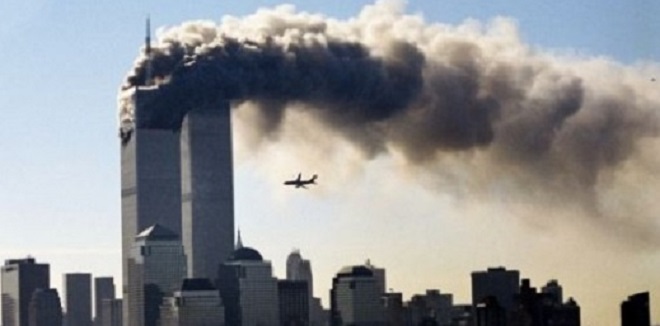
Washington, United States | AFP |
A new US law allows survivors of terror attacks and victims’ relatives to sue foreign governments, opening the way for Saudi Arabia to be targeted for its alleged role in the 9/11 attacks.
The kingdom firmly denies it had anything to do with the September 11, 2001 assault on New York and Washington, and warned Thursday of “disastrous consequences” for relations between the allies.
But what do we know about the allegations, and what might be revealed if the families of 9/11 victims seize on the Justice Against Sponsors of Terrorism Act to have their day in court?
Saudi hijackers
The Saudi government insists it had no official involvement in the attacks, and the official US investigations found no proven link.
But individual Saudis were involved: 15 of the 19 hijackers who seized passenger jets and crashed them into landmarks were citizens of the kingdom.
The attack was carried out by the Al-Qaeda movement, which was founded and led by Osama bin Laden, the son of a wealthy Saudi construction magnate with close ties to the royal family.
But Bin Laden himself had been banished from the kingdom in 1992 and was stripped of his Saudi citizenship by royal decree in 1994 after speaking out against the king.
The 9/11 Commission set up by President George W. Bush said in 2004 that “Saudi Arabia has long been considered the primary source of Al-Qaeda funding.”
“But we have found no evidence that the Saudi government as an institution or senior Saudi officials individually funded the organization.”
The ’28 pages’
Why, then, do suspicions remain? And why did an overwhelming majority of US lawmakers vote to override President Barack Obama’s veto, passing a law to allow lawsuits against the kingdom?
Part of the answer lies in the so-called “28 pages,” a section of a congressional report into the attacks that pre-dated the 9/11 Commission findings and was classified on Bush’s orders.
For years, the mystery surrounding the missing section fed theories that the US administration had censored the passages to save Saudi officials from scrutiny and protect ties with the oil-rich ally.
But in July this year, under pressure from lawmakers and victims’ families, Obama ordered the 28 pages to be released, and they do not definitively identify official Saudi involvement.
“While in the United States, some of the 9/11 hijackers were in contact with, and received support or assistance from, individuals who may be connected to the Saudi government,” the document said.
One suspect on the US East Coast believed to be from the Saudi interior ministry appeared to fake a seizure during FBI questioning about his links to a hijacker.
He was later released from hospital and managed to flee the country before he could be questioned again.
In California, a suspected Saudi intelligence operative was believed to have provided “substantial assistance” settling two more hijackers in to American life.
The phonebook of an Al-Qaeda operative captured in Pakistan meanwhile pointed to US contacts, notably a company that managed a Colorado property of the then-Saudi ambassador.
Follow-up investigation
Releasing the material, the Obama administration said the leads turned up by the 2002 congressional probe and contained in the missing 28 pages have since been investigated.
“They don’t shed any new light,” spokesman Josh Earnest said, “or change any of the conclusions about responsibility for the 9/11 attacks.”
 The Independent Uganda: You get the Truth we Pay the Price
The Independent Uganda: You get the Truth we Pay the Price





